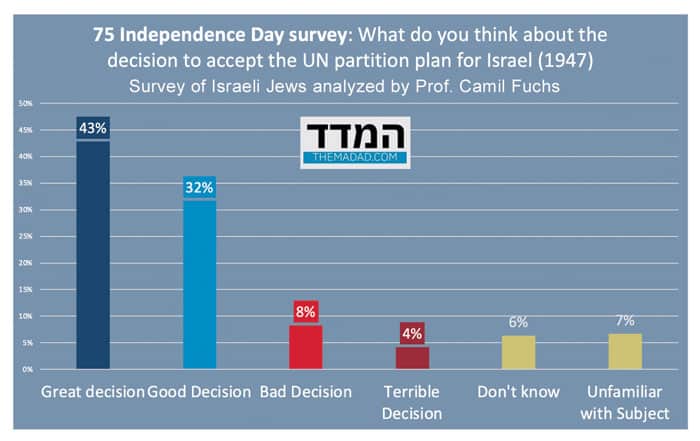 David Silverman/Getty Images
David Silverman/Getty Images The Israeli government wishes to lower the age of exemption from military service for ultra-Orthodox men. This is an important issue; an issue born out of despair. Despair of what? The answer is simple: Despair of the possibility of equality.
This requires some explaining, and I’ll try to make it short. As a rule, Haredis refuse to serve in the IDF. They got an exemption from conscription when they were a much smaller community. The exemption forces them to study in yeshiva until a late age (because otherwise they lose the exemption). So they stay, rather than join the workforce.
A majority in Israel believes that haredis should serve like everyone else. But this majority gave up hope that this will ever happen.
A majority in Israel believes that Haredis should serve like everyone else. But this majority gave up hope that this will ever happen. Thus, many support the solution currently offered: release of the Haredi men at a younger age, so they can go to work. Is that just? of course not. And yet — the proponents of the idea will tell you — it is smart. Haredis (generally speaking) do not contribute enough to Israel’s security; Haredis do not contribute enough to Israel’s economy. Let’s forgo the first to get the second.
As this proposal is promoted, three fairy tales are being sold to the public:
The first – Haredis would work. Why a fairy tale? Because it is not certain that they will go to work unless a significant cut in allowances for yeshiva students is made in parallel to the change of exemption age (Haredi politicians wouldn’t allow it).
The second fairy tale concerns the exaggerated wished-for contribution of this move to the economy. Haredis who leave their studies will be unqualified for work that is of great benefit. They know no English, math, science, technology. These are guys who sat and studied Talmud. A fascinating subject, but not quite useful in the modern world. The dropout rate of Haredi students from academic studies is high, the professions they tend to choose are low income. If someone wanted to do it right, they would insist that the exemption apply only to those who studied a full course of core subjects as a youth (they won’t).
The third fairy tale is ‘exemption will promote integration’. This one has been sold to us by entrepreneurs and organizations for more than a decade. If we only had a special track for Haredis in the Air Force, change will come. If we only establish a Haredi Battalion, they will mobilize. If only we let them study separately … the Haredis will have the epiphany that would bring about transformation. A fairy tale. Those familiar with the numbers know that most of these efforts had meager results. Will lowering the exemption age be the catalyst of integration? Maybe, maybe not. This is not a projection; this is hope. We sell the public a plan based on hope, not data. The only thing that’s certain is that the haredis will receive their exemption, in a move that will be very difficult to reverse.
And such a move will crush the People’s Army model. The Haredis are a rapidly growing population. When they are 15% of the population, or 20, or 23%, a transformation is to be expected. In fact, it is surprising that this has not yet happened. Non-Orthodox Israelis will get tired of the unequal arrangement.
Imagine this moment: Two hundred high school students declare that they do not want to enlist. They gather opposite the Knesset. Within two weeks, 500 join them. In another two weeks, 4,000 signatures are collected of youngsters who pledge to join. It is July, and in August, all of them should be in uniform. What will the government do? You can’t put everyone in jail. You can’t tempt them with money. The government wants to boost the salary of soldiers, which is nice. But not everyone will take the offer. In fact, the soldiers that the IDF needs the most — the cleverest, the most talented — will understand that it is better for them to give up the little money that the IDF offers, and start a life where they can get the big bucks.
If the People’s Army model has not crashed by then, it will crash at that moment. And we have to ask: what happens next? On this question, the Haredis try to sell another fairy tale: the professional military. Even among the non-Orthodox, the share of support for such idea is growing. They usually neglect to ask two things: How much will it cost? And will it provide security? Since we must make it short I’ll give you the answer of almost all experts who seriously examined the feasibility of such idea for Israel. A professional army will cost much more and provide much less security. That is the real price of younger age exemption.
Something I wrote in Hebrew
Why are Israelis worried? There seem to be three reasons for this. The first indicates that we are still sharp. A sober reality reading shows that we are really in danger. There is Iran, there are other enemies. There are also permanent problems that are not addressed and are only exacerbated: overcrowding in a small country with little room to move, an increase in the proportion of ultra-Orthodox, many of whom do not work, problems arising from the ongoing occupation of the territories, the fact that we do not have a constitution, that is, a tool for maintaining stability. This is only a partial list, but it is also enough to recognize that there are a too many things on which we say “we will deal with it later,” and then wait and wait and wait.
A week’s numbers

A reader’s response:
Adi Erlen asks: “What is the best argument in favor of legal reform?”
Answer: The fact that many Israelis are under the impression that the court highjacked some of the functions that should be reserved for legislators.
Shmuel Rosner is senior political editor. For more analysis of Israeli and international politics, visit Rosner’s Domain at jewishjournal.com/rosnersdomain.























 More news and opinions than at a Shabbat dinner, right in your inbox.
More news and opinions than at a Shabbat dinner, right in your inbox.